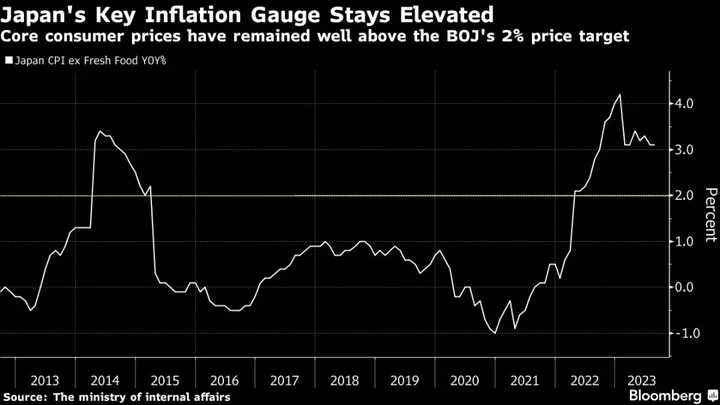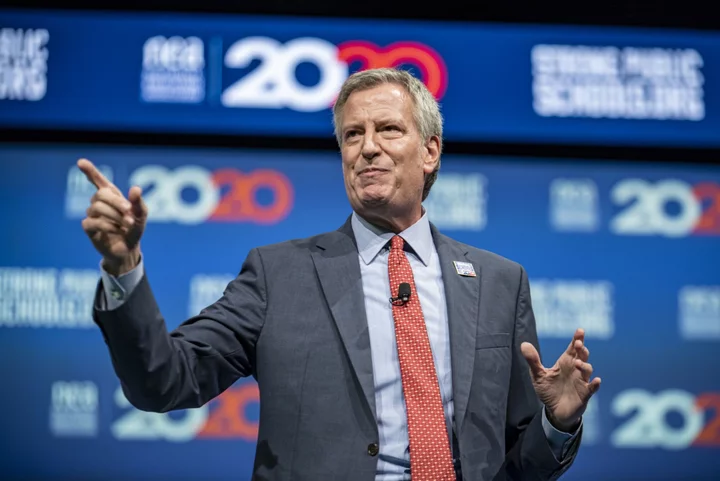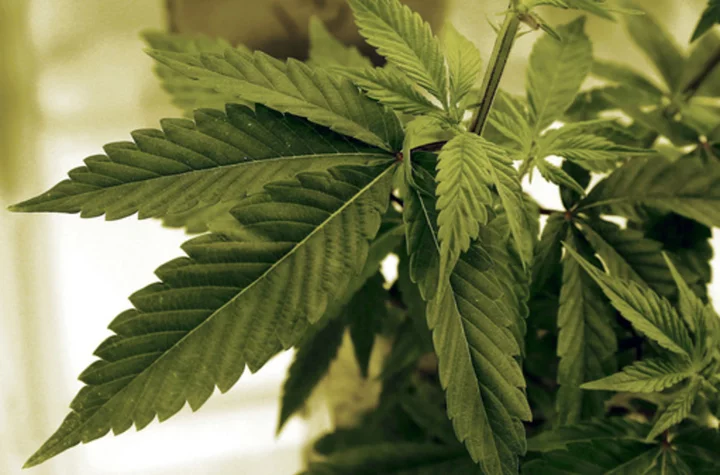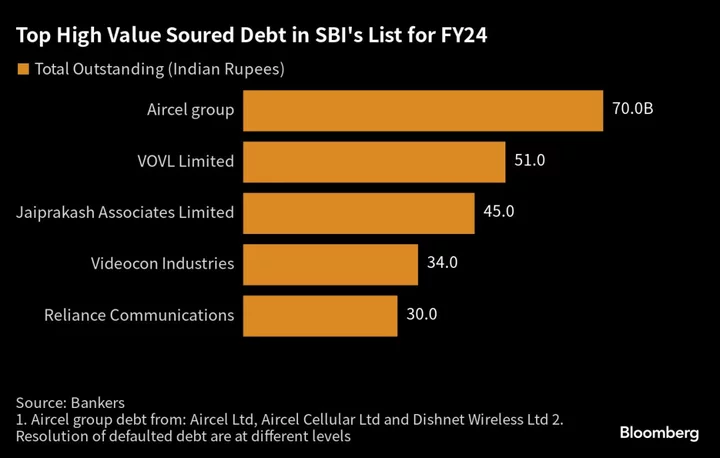The Bank of Japan is likely to discuss raising its inflation projection for fiscal year 2023 and 2024 at its policy meeting later this month, extending the period in which it sees prices reaching or exceeding its 2% goal, according to people familiar with the matter.
BOJ officials see the bank’s projection for its key inflation gauge — consumer prices excluding fresh food — likely being revised higher to 2% or more for the year starting in April, according to the people. That’s up from the 1.9% forecast made in July, and it would mean the central bank sees inflation at or above 2% for three consecutive years, a development that could fuel speculation over policy normalization.
The price forecast for this fiscal year is likely to be increased closer to 3% from the current 2.5%, the people said.
Following news of the central bank price view, the yen briefly strengthened to 148.84 against the dollar from around 149.70, before it swiftly fell back to around 149.50. It traded around 149.70 Wednesday morning after coming close to 150 again overnight.
The central bank is mulling its price views amid speculation over the future of monetary policy and heightened focus on the yen, as Japan’s currency remains near levels where authorities intervened to support it a year ago. In July, price projection revisions were accompanied by adjustments to the BOJ’s yield curve control program.
On Wednesday Japan’s benchmark 10-year yield rose to the highest level since 2013 following a jump in US yields, amid ongoing speculation that the central bank may adjust its monetary policy further.
If the BOJ were to loosen its grip on long-term yields further, that could have ripple effects across a range of assets across the globe, although the central bank is likely to deny that such a move is a step toward policy normalization.
Officials view the weakening yen and higher oil prices as factors that add to existing inflationary pressures, according to the people familiar with the matter. That’s after Japanese businesses have passed on more costs to consumers than the bank was previously expecting.
While Prime Minister Fumio Kishida’s decision to extend government programs to contain energy prices will exert a drag on inflation this year, it will be a factor that will boost price growth in the following year, the people said.
Still, officials don’t see the BOJ’s stable 2% inflation goal as currently within sight, the people said. The price growth outlook for fiscal 2025 is likely to remain around the current forecast of 1.6%, they said.
So far the BOJ has emphasized the need for wage growth to accompany inflation before the central bank can say it has achieved its stable price goals. Yet real pay in Japan has fallen for 17 consecutive months through August, and nominal wage growth has also remained below 2% in recent months.
The BOJ is set to release its quarterly economic projections on Oct. 31, together with its policy statement.
(Updates with further market moves, details)









